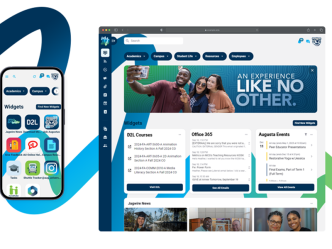The following email was originally sent by Walter Ray, chief information security officer, on March, 29, 2017. The scam continues, however, so please follow these tips keep your computer safe.
Scam artists are using the phone to try to break into your computer. They call, claiming to be computer techs associated with well-known companies like Microsoft. They say that they’ve detected viruses or other malware on your computer to trick you into giving them remote access or paying for software you don’t need.
These scammers take advantage of your reasonable concerns about viruses and other threats. They know that computer users have heard time and again that it’s important to install security software. But the purpose behind their elaborate scheme isn’t to protect your computer; it’s to make money.
There’s a new version of the scam being reported that involves a pop-up warning claiming to be from Microsoft. The fake notification first warns you that your computer will lock up if the alert window is closed, and then it instructs you to call a specific phone number immediately. The message may also warn that your computer has been infected or claim that your information has already been stolen.
In a recent example the scammer installed antivirus software on an unsuspecting person’s computer and asked for a credit card number to collect a payment of $600.00. The IT Help Desk will never ask you to pay for support. If you see a pop-up window asking you to call a phone number for support, it is not a legitimate message.
What should I do if I get a call from someone claiming to be from tech support?
- Don’t give control of your computer to a third party who calls you unexpectedly.
- Do not rely on caller ID alone to authenticate a caller. Criminals are able to fake caller ID numbers. They may appear to be calling from a legitimate company or a local number, when, in fact, they are not.
- Online search results are not the best way to find technical support. Scammers often place online ads to convince you to call them. They pay to boost their ranking in search results so their websites and phone numbers appear above those of legitimate companies. If you want tech support, look for a company’s contact information on their software manual or on your purchase receipt.
- Never provide your credit card or financial information to someone who calls and claims to be from tech support.
- If a caller pressures you to buy a computer security product or says there is a subscription fee associated with the call, hang up. If you’re concerned about your computer, hang up and call the Help Desk at 706-721-4000.
- Never give your password to anyone. No legitimate business will ask you to reveal your password.
Please contact the Help Desk at 706-721-4000 if you have any questions.
Walter Ray
Chief Information Security Officer
 Augusta University
Augusta University



